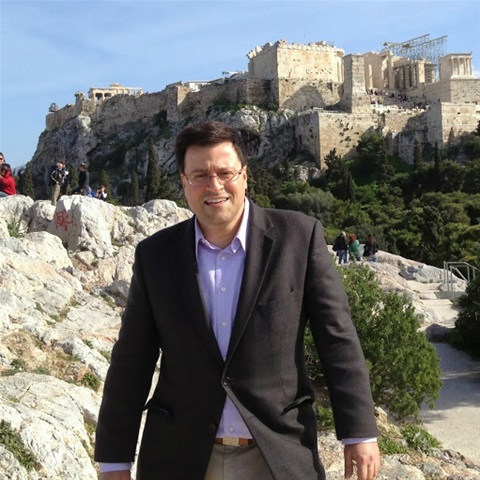
The 2nd Edition of “Collected Writings on Orthodox Christianity” is as Good as the First – John G. Panagiotou

John G. Panagiotou
OCP Publications – 18/7/16 – American Orthodox Institute Review
BUY FROM LULU for $7.50 only
http://www.lulu.com/shop/george-alexander/collected-writings-on-orthodox-christianity/paperback/product-22738642.html
Collected Writings on Orthodox Christianity: Various Aspects of Eastern and Oriental Orthodox Churches Alexander, George, editor; OCP Publications: Kerala, India (Second Edition, June 2016).
In this second edition of Collected Writings on Orthodox Christianity, editor and author George Alexander provides new content as good as the first.
This compendium provides a panoply of approaches in contemporary Eastern Orthodox and Oriental Orthodox jurisdictions regarding church structure and pastoral life. The writers discuss topics as varied as Orthodoxy in Israel, Ethiopia, India, Armenia, Egypt, Syria, Kenya and the challenges that they face in the modern world. We are introduced to the ministry work of Orthodox missionaries in the far off regions of Asia and Africa as well as the “domestic mission fronts” of Great Britain and America. We encounter many people who are saintly and try to live out the Good News of the Risen Jesus.
We are given moving first hand accounts of the recent conflicts (internal and external, ecclesial and secular) in Syria, Ukraine, and Serbia. Within these difficult and sobering hardships we see how the quest to become a communicant of Jesus Christ within the “One, Holy, Catholic and Apostolic Church” continues.
Matters of practical social importance are closely examined alongside topics as ministry to the poor, sick and disenfranchised. Other matters of lesser importance but divisive nonetheless are also examined. Take for example, Who Fears the Yoga? This is a controversial topic because in 2015 the Holy Synod of Bishops of the Church of Greece issued a statement condemning and banning the practice of yoga as incompatible with the Orthodox Christian life. These topics may seem random and curious to the casual reader. In fact they are conflicts of opinion that never stop within Orthodoxy.
Several chapters focus on the major feasts of Our Lord and His Mother Mary (the Theotokos) that are instructive for both Orthodox and non-Orthodox alike. These feasts are presented with great clarity for which the editor should be commended. It is important to understand them so that our youth can be properly taught. The late Coptic Orthodox Pope Shenouda III said, “A Church without youth is a Church without a future” and we need to heed this exhortation.
To Roman Catholic or Protestant ears Alexander’s tone may sound exclusionary. This reaction is understandable. To many Orthodox, Alexander’s call for greater cooperation with administrative and sacramental reunion of all Christians seem an impossible chasm to bridge while others don’t even desire it. To the secular reader, the often fractious history of the Orthodox Churches will be a confused, chaotic series of events which is followed by more confusion and chaos today.
I suggest that the reader not rush to judgment about the book regardless if he agrees or disagrees with the opinions of the authors. That would deprive him of an understanding of the realities that face the Orthodox world. Instead, approach the work through the eyes of the Orthodox who often see some things much differently than the prevailing wisdom would indicate. The great theologian Fr. Sergius Bulgakov said, “Orthodoxy does not try to persuade or try to compel; it charms and attracts.” For that reason we sometimes have to see things through eyes other than our own.
Two of the most intriguing chapters are A British Journey to Ethiopian Orthodoxy and From Baptist to Byzantium where a former Anglican describes his journey into the Ethiopian Orthodox Church and a former Baptist describes his journey into the Greek Orthodox Church. In each scenario we are given the phenomena of converts who, in spite of cultural barriers, leap the chasm between West and East in the conviction that they have found “the Truth.” That phrase strikes some as offensive, even arrogant, but Fr. Fr. George Metallinos, Professor Emeritus of Theology at the University of Athens, explains what the Orthodox mean by it:
The truth is not an idea, a theory, a system, but a Person, the Most Holy Person of the Incarnate Word of God, Jesus Christ. Therefore we must ask the same about Orthodoxy because it is identified with the God-Man, Person of the Word of God. He as God-Man is our Orthodoxy, our complete Truth.
George Alexander has done another service to both East and West, scholar and student, clergy and laity with this second edition of Collected Essays on Orthodox Christianity: Various Aspects of Oriental Orthodox Churches. I warmly recommend it.

John G. Panagiotou is a Greek Orthodox theologian and writer, a graduate of St. Vladimir’s Orthodox Theological Seminary and Wheeling Jesuit University. He is Lecturer in New Testament Greek at Cummins Theological Seminary. He can be reached at johnpan777@gmail.com.

[…] READ REVIEW BY John G. Panagiotou at American Orthodox Institute […]
828022 216007This site is truly a walk-through it actually is the info you desired relating to this and didnt know who ought to. Glimpse here, and you will undoubtedly discover it. 145676